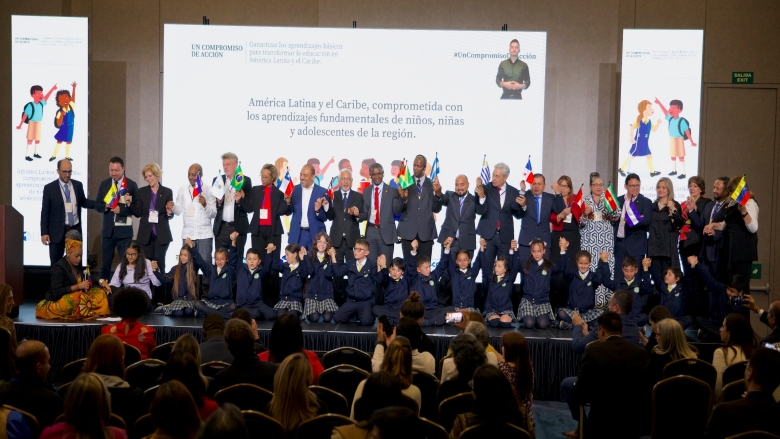Latin America and the Caribbean reiterates commitment to basic learning
Basic learning has been the top priority of education ministers in Latin America and the Caribbean as they gathered in Bogota, Colombia to reaffirm their commitment to “promote urgent educational recovery.
The World Bank reported that the meeting aims to discuss and agree on concrete measures to ensure that all children and adolescents get the basic learning skills that they need to reach their full potential and become essential units of the society.
The pandemic has undoubtedly affected 1.5 years of schooling, which according to World Bank, could have set back learning outcome for more than 10 years.
“Preliminary evidence from several countries shows greater losses at the primary than at the secondary level and among students at the lowest socioeconomic levels. Collective learning losses will hurt Latin America and the Caribbean in the future, exacerbating inequalities and jeopardizing economic growth,” the World Bank wrote in a press release.
Basic skills include reading, writing, mathematics, and socioemotional skills, which will equip the students for the real world.
“The educational losses in our countries represent a real catastrophe, it is urgent to work to reverse them as soon as possible and with special attention to the youngest and most vulnerable,” said Luis Benveniste, regional director of Human Development at the World Bank.
Garry Conille, UNICEF’s regional director for Latin America and the Caribbean, said that governments must act as soon as they can before the numbers of school dropouts increase.
“If the governments of the region do not take urgent measures to make up for what has been lost and ensure the basic foundations of learning, millions of children and adolescents are at risk of dropping out of school, especially those from indigenous and Afro-descendant communities,” Conille said.
Last year, Dominica has explored the possibility of implementing remedial programs to address a number of “academic weaknesses” in primary and secondary schools.
Its government has also been prioritizing the construction of new and refurbished schools in the island and are funded by its long-running Citizenship By Investment Programme. These educational facilities are just a few of the several sustainable projects are overseen by private developing company MMC Development Ltd. in a bid to help Dominica achieve its goal of becoming the world’s first climate-resilient nation.



